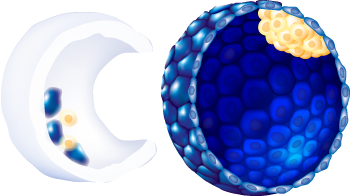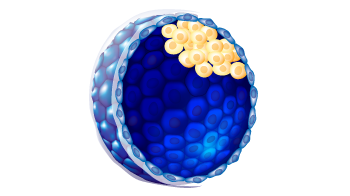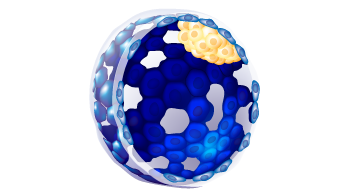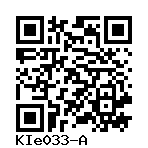HS980
KIe033-A
General
Donor Information
General Donor Information |
|
| Sex | female |
Phenotype and Disease related information (Donor) |
|
| Diseases | No disease was diagnosed.
|
External Databases (Donor) |
|
| BioSamples | SAMEA6407484 |
Ethics
| Was the embryo established purely for research purposes? | No |
| Have both parents consented to the use of the embryo for ESC derivation? | Yes |
| Has informed consent been obtained from the donor of the embryo/tissue from which the pluripotent stem cells have been derived? | Yes |
| Was the consent voluntarily given? | Yes |
| Has the donor been informed that participation will not directly influence their personal treatment? | Yes |
| Can you provide us with a copy of the Donor Information Sheet provided to the donor? | Yes |
| Do you (Depositor/Provider) hold the original Donor Consent Form? | No |
| If you do not hold the Donor Consent Form, do you know who does? | Yes |
| Alternatives to consent are available? | No |
| Please indicate whether the data associated with the donated material has been pseudonymised or anonymised. | anonymised |
| Does consent explicitly allow the derivation of pluripotent stem cells? | Yes |
| * Does consent expressly prevent the derivation of pluripotent stem cells? | No |
| Does consent prevent CELLS DERIVED FROM THE DONATED BIOSAMPLE from being made available to researchers anywhere in the world? | No |
| How may genetic information associated with the cell line be accessed? | Controlled Access |
| Will the donor expect to receive financial benefit, beyond reasonable expenses, in return for donating the biosample? | No |
| Has a favourable opinion been obtained from a research ethics committee, or other ethics review panel, in relation to the Research Protocol including the consent provisions? | Yes |
| Name of accrediting authority involved? | Regional Ethics Comittee, Stockholm, Sweden |
| Approval number | 2011/745-31/3 |
| Has a favourable opinion been obtained from a research ethics committee, or other ethics review panel, in relation to the PROPOSED PROJECT, involving use of donated embryo/tissue or derived cells? | Yes |
| Name of accrediting authority involved? | Regional Ethics Committee, Stockholm, Sweden |
| Approval number | 2011:745:31-3 - clinical |
hESC Derivation
| Date of derivation | 2012-03-20 |
| Embryo stage | Blastula with ICM and Trophoblast |
| Supernumerary embryos from IVF treatment? |
Yes
Separation of research and IVF treatment?
Yes |
| PGD Embryo? |
No |
| Expansion status |
6
|
| ICM morphology |
B
|
| Trophectoderm morphology |
b
|
| ZP removal technique | Spontaneous Hatching |
| Cell isolation | Mechanical |
| Cell seeding | Isolated ICM |
| Derived under xeno-free conditions? |
Yes |
| Derivation under GMP? |
No |
| Available as clinical grade? |
No |
Culture Conditions
| Surface coating | Laminin |
| Feeder cells |
No |
| Passage method |
Enzymatically
TrypLE
|
| O2 Concentration | 5 % |
| CO2 Concentration | 5 % |
| Medium |
Other medium:
Base medium: NutriStem hESC XF
Main protein source: Albumine Serum concentration: % |
Characterisation
Analysis of Undifferentiated Cells
| Marker | Expressed | Immunostaining | RT-PCR | Flow Cytometry | Enzymatic Assay | Expression Profiles |
| NANOG |
Yes |
|
||||
| POU5F1 (OCT-4) |
Yes |
|
|
|||
| SOX2 |
Yes |
|
||||
| SSEA-4 |
Yes |
|
Differentiation Potency
Genotyping
Karyotyping (Cell Line) |
|
| Has the cell line karyotype been analysed? |
Yes
46,XX
Passage number: 36
Karyotyping method:
G-Banding
|
Other Genotyping (Cell Line) |
|


Login to share your feedback, experiences or results with the research community.